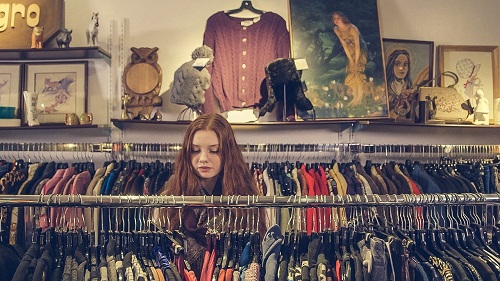 A report by GlobalData revealed post COVID-19, sustainability has become one of the most important theme for fashion businesses across the world. Public anger over the lack of action on climate change and corruption has accelerated sustainability discussions amongst fashion retailers.
A report by GlobalData revealed post COVID-19, sustainability has become one of the most important theme for fashion businesses across the world. Public anger over the lack of action on climate change and corruption has accelerated sustainability discussions amongst fashion retailers.
Retailers need to adapt to a different business model that incorporates circular fashion and sustainability, says the report. Retail Insight Network advises these retailers to promote circular economy which would not only protect the environment but also help them stay relevant in a changing retail landscape.
Replacing fast fashion with circular alternatives
UK-based charity Ellen McArthur Foundation defines circular economy as a way to redefine growth by separating economic growth from the consumption of finite resources and designing waste out of the system. It also includes regenerating the natural system by switching to renewable energy sources. One of the ways, the fashion industry can become sustainable is by replacing fast and linear fashion with circular alternatives.
of finite resources and designing waste out of the system. It also includes regenerating the natural system by switching to renewable energy sources. One of the ways, the fashion industry can become sustainable is by replacing fast and linear fashion with circular alternatives.
One of the most-used retail models, fast fashion promotes a ‘wear once’ attitude, with its constant introduction of new stocks. Through this, it reduces the lifecycle of clothes, which are made, bought and disposed off after little use. As Waste & Resources Action Program (WRAP) reveals, UK consumers dispose an estimated £140m and 350,000 tons of used clothing annually.
Promoting sustainable transportation and delivery
But the fast fashion model does not damage environment just by wasting clothes but also through the pollutants that are released during their delivery and transportation. A circular business model can help retailers reduce this damage and grow businesses. Many fast fashion brands including Nike have embraced the circular fashion model. Nike has created its new trainer ‘Space Hippie’ with around 50 per cent recycled waste while Inditex has pledged to convert stores into ‘sustainability hubs’ within the next two years.
GlobalData’s June study conducted in partnership with ThredUp expects second-hand apparel market to grow to $64billion within the next five years. The study states, online thrifting is likely to grow to 69 per cent between 2019 and 2021, while the broader retail sector is likely to shrink 15 per cent. The analysis also expects resale to be a bigger industry than fast fashion by 2029, with traditional thrift and donation-based fashion to be worth $36billion, resale to be worth $44billion, and fast fashion $43 billion. The total value of second-hand fashion will be at $80 billion, almost double that of fast fashion.
Rise of fashion re-commerce
The rise of circular fashion may have been a result of changing perceptions of retail and the need for sustainability however, COVID-19 has accelerated its popularity amongst consumers. Stastistics by GlobalData and ThredUp reveals 79 per cent consumers plan to cut their apparel budget in the next year, with 88 per cent consumers preferring to adopt a new thrifty hobby such as mending clothes and sewing face masks.
Fashion retailers can benefit from this by switching to new business models, such as resale and re-commerce. Resale can prove as a green alternative for retailers as re-commerce sites like eBay, and Depop have been increasing in their focus on second-hand buying. Department stores are also integrating resale into the retail industry. American department store Macy’s has employed brick-and-mortar ThredUp thrift stores, with more department stores like JCPenney expected to follow soon. Another retailer & Other Stories sells pre-owned garments through the ‘pre-loved’ section of its website while Barclays, a British financial services company views COVID-19 as an opportunity for brands to embrace sustainability and switch to circular fashion.












